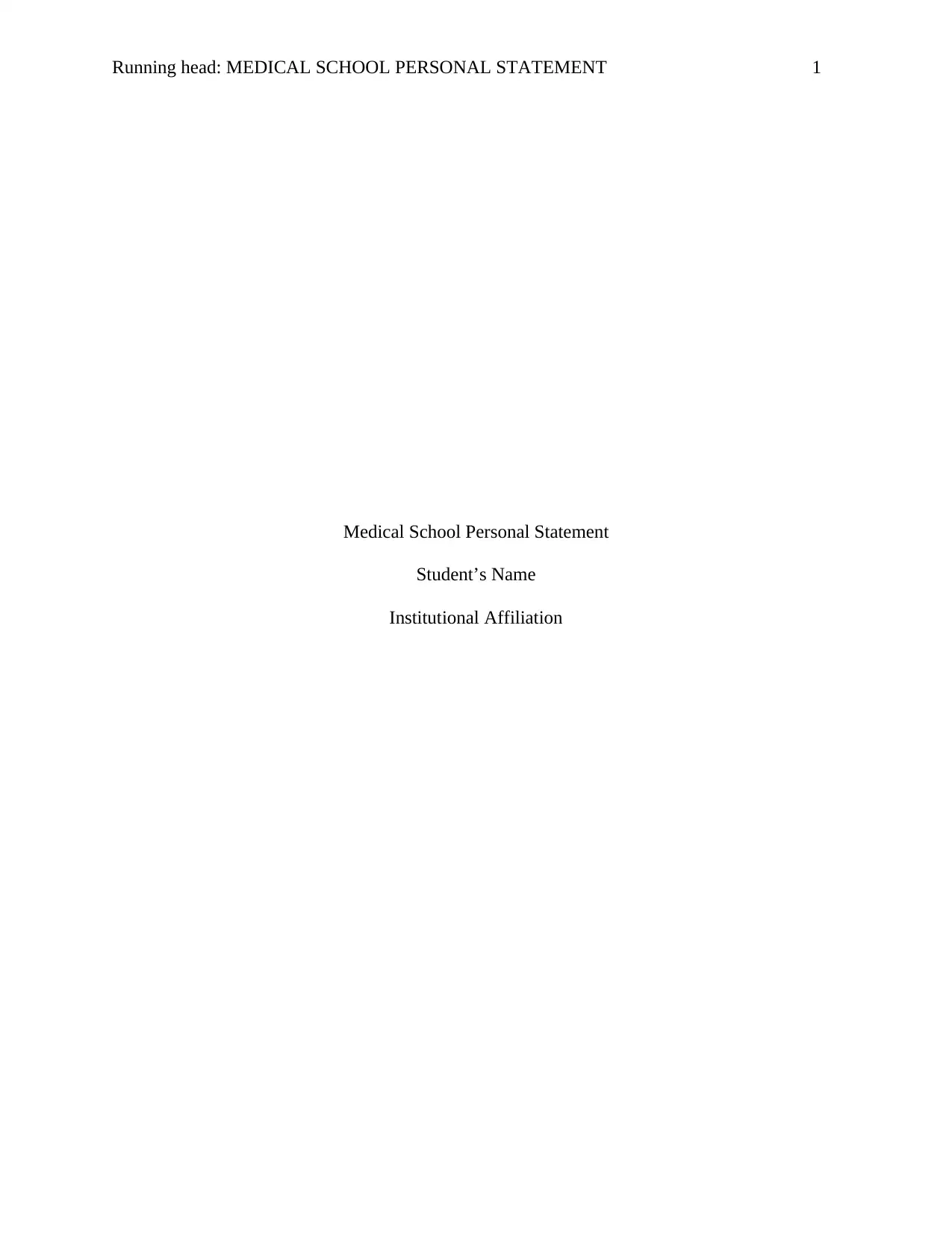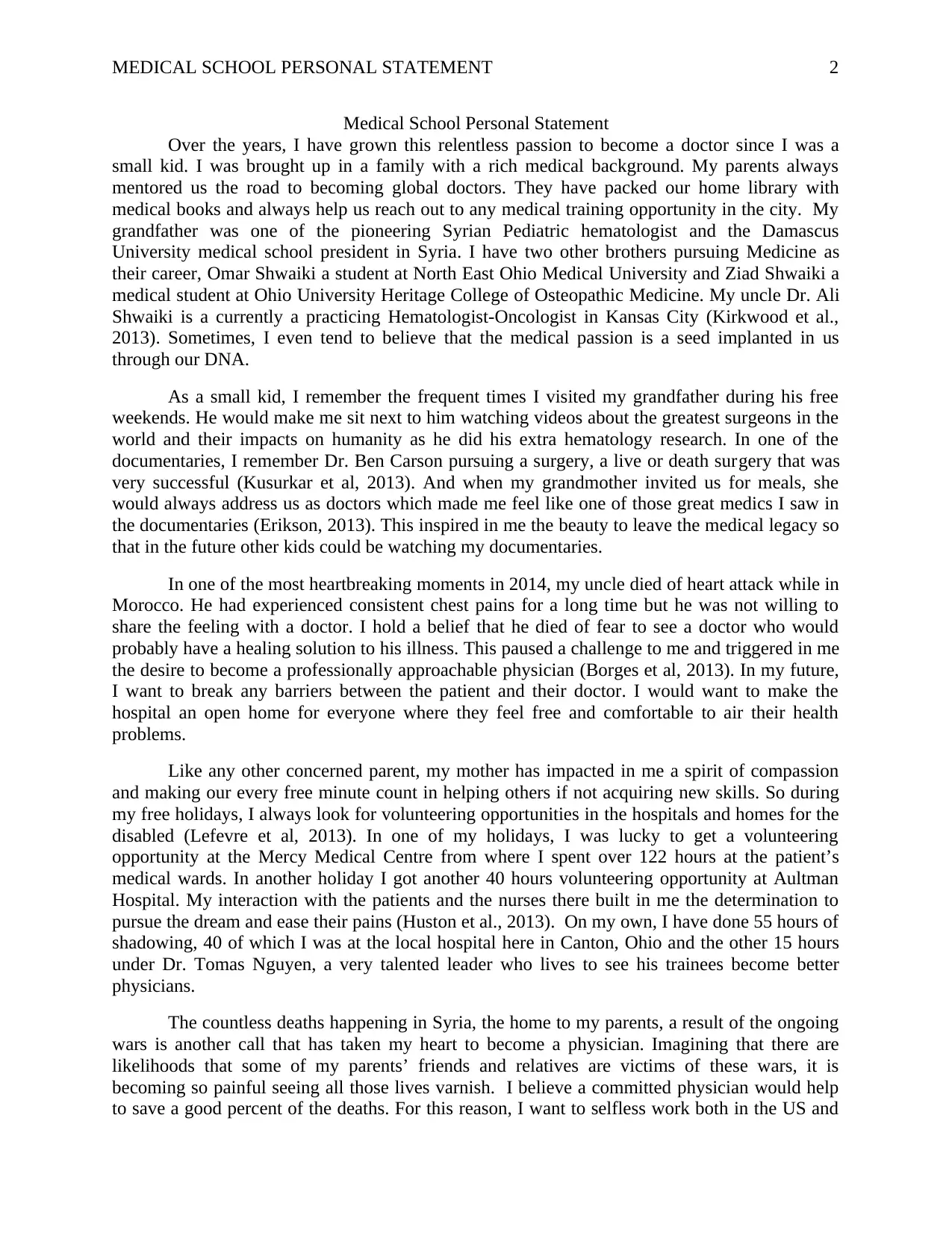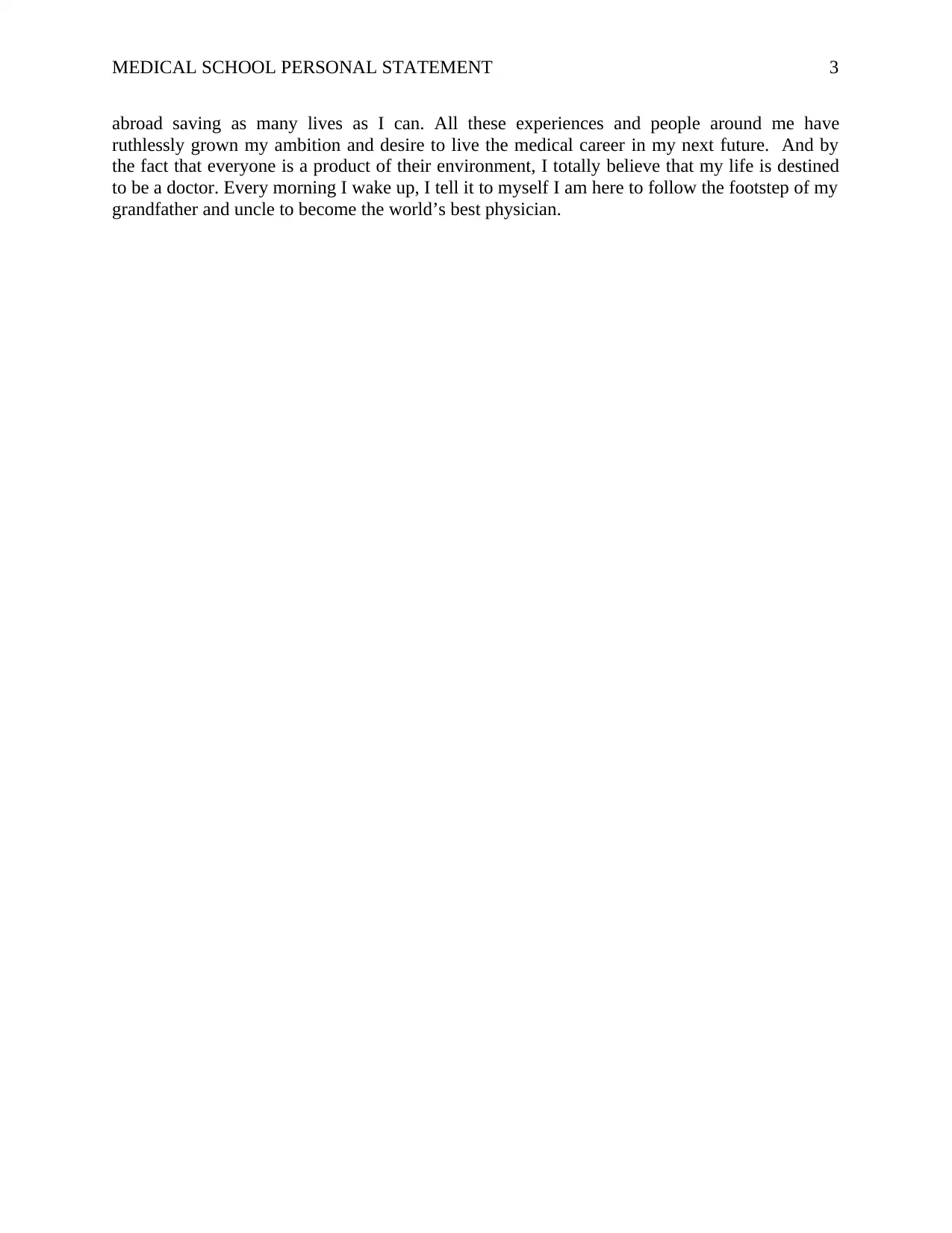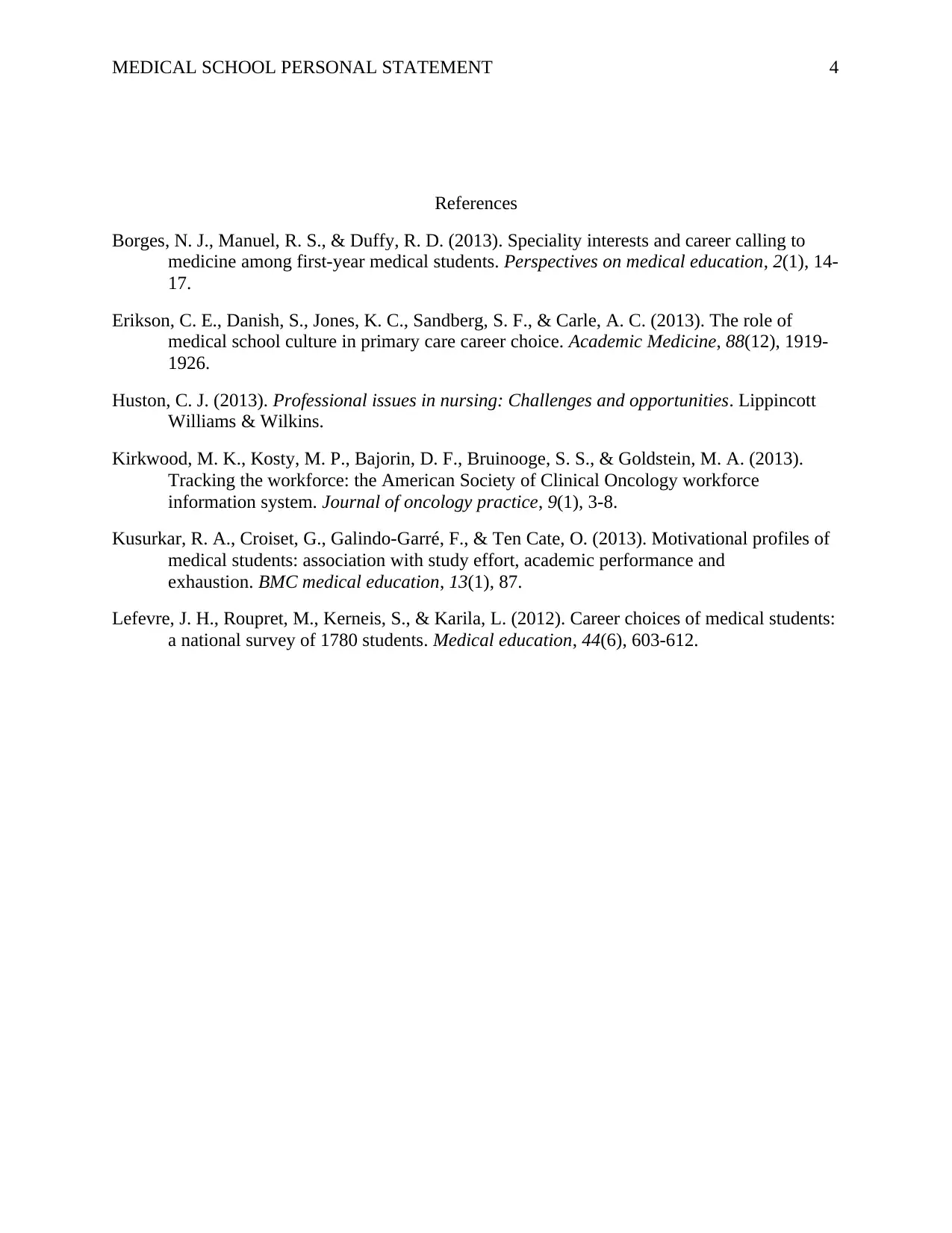Medical School Personal Statement: Passion, Experience, and Ambition
VerifiedAdded on 2021/06/18
|4
|1111
|250
Essay
AI Summary
This medical school personal statement details the author's lifelong ambition to become a doctor, deeply rooted in a family with a rich medical background. The author recounts early exposure to medicine through family members, including a grandfather who was a pioneering pediatric hematologist, and the influence of watching medical documentaries. Personal experiences, such as the death of an uncle due to an unwillingness to seek medical help, have further fueled the author's desire to bridge the gap between patients and physicians. The statement highlights volunteering experiences at hospitals and the impact of witnessing the ongoing conflicts in Syria, the author's parents' homeland, as key drivers. The author expresses a commitment to selfless service, both in the US and abroad, aiming to save lives and carry forward a family legacy of medical excellence. The essay concludes with a strong affirmation of the author's destiny to pursue a medical career.
1 out of 4









![[object Object]](/_next/static/media/star-bottom.7253800d.svg)